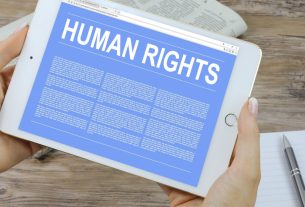What may seem like a technical exercise in global health bureaucracy, the World Health Organization’s (WHO) update to its Essential Medicines Lists, will in fact have life-changing consequences for millions of people around the world. By adding therapeutic sunscreen and rapid-acting insulin analogues on September 5, the WHO sent a clear signal to governments: these are not luxuries, but lifesaving goods that should be available and accessible to all, regardless of their ability to pay.
Every other year since 1977, the WHO has convened a group of medical experts to produce a list of essential medicines. This Model List of Essential Medicines, along with the WHO’s Model List of Essential Medicines for Children, directly influences the policies of over 150 governments around the world.
People with albinism face a disproportionate risk of skin cancer because of the lower levels of melanin in their skin. The United Nations independent expert on albinism, the Global Albinism Alliance, the Africa Albinism Network, and others, have long advocated including SPF 50+ broad-spectrum sunscreen in these lists, with Human Rights Watch supporting their position. The WHO Expert Committee on the Selection and Use of Essential Medicines has now acknowledged both the public health importance of sunscreen and the need for a clear therapeutic standard.
The inclusion of rapid-acting insulin analogues is also a major step toward improving the availability and accessibility of these drugs, which millions of people with diabetes around the world depend on to regulate their blood sugar.
In 2022, Human Rights Watch documented how the US government’s failure to adequately regulate the price of insulin undermined the human rights of people with Type 1 Diabetes. Thanks to the work of diabetes patient advocates like T1International, which have for years advocated for their inclusion, the updated WHO lists now recommend that all governments should ensure that these drugs are made available “at prices individuals and health systems can afford.”
All governments that are parties to the International Covenant on Economic, Social and Cultural Rights have a “core obligation” to ensure at least minimum essential levels of primary health care, an obligation that is interpreted as requiring governments to provide drugs listed as essential by the WHO to people within their jurisdiction. Now the crucial task ahead is ensuring that governments live up to these obligations.


